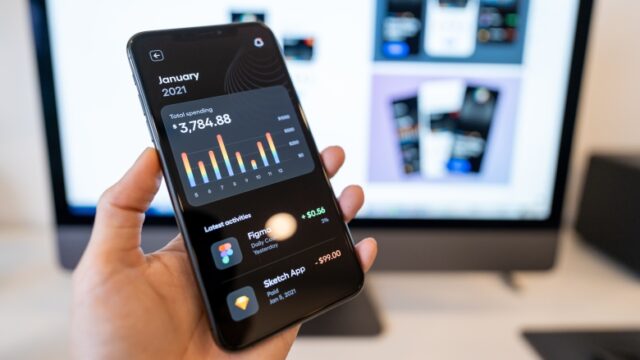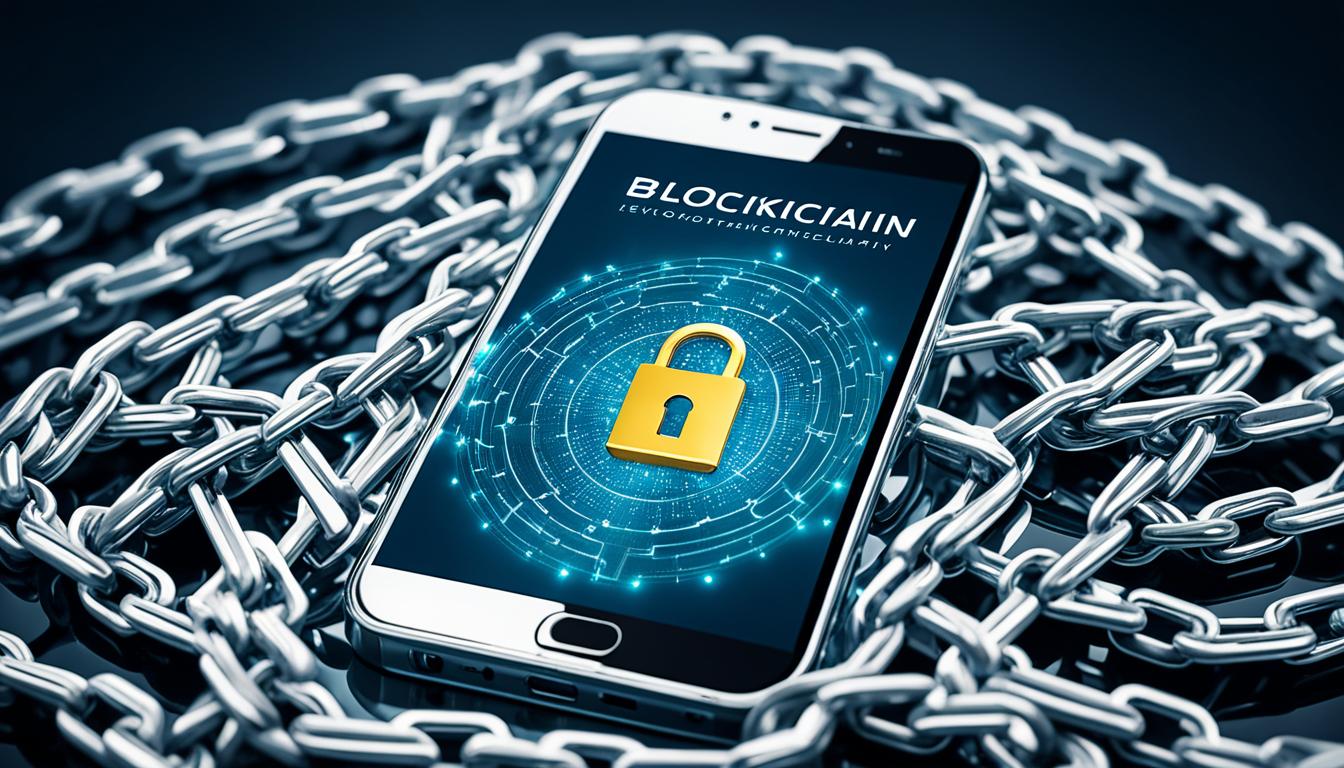As mobile applications continue to proliferate across industries, ensuring the security of transactions within these apps has become paramount. Cybersecurity threats are on the rise, prompting businesses to seek innovative solutions to protect sensitive data. One of the most promising technologies in this regard is blockchain. Originally designed for cryptocurrencies, blockchain technology is now being leveraged to enhance the security and integrity of mobile app transactions. Here’s a closer look at the role of blockchain in securing these transactions.

Table of Contents
Toggle1. Decentralization and Transparency
Blockchain operates on a decentralized network, meaning there is no central authority governing the system. This decentralization provides several security benefits:
- Reduced Single Point of Failure: Unlike traditional databases, which are vulnerable to centralized attacks, blockchain’s distributed nature makes it significantly harder for cybercriminals to compromise the entire system.
- Transparent Transactions: Every transaction on a blockchain is recorded in a public ledger, ensuring transparency. This means that all participants can verify transactions without needing to rely on a central authority, reducing the risk of fraud.
2. Enhanced Security Through Cryptography
Security is a foundational aspect of blockchain technology, primarily achieved through advanced cryptographic techniques:
- Hash Functions: Each block in a blockchain contains a unique hash of the previous block, creating a secure chain of data. This makes it nearly impossible to alter any information without being detected.
- Digital Signatures: Blockchain employs digital signatures to verify the identity of users involved in a transaction. This ensures that only authorized parties can initiate transactions, protecting against unauthorized access and fraud.
3. Immutability of Transactions
One of the standout features of blockchain technology is its immutability:
- Permanent Records: Once a transaction is recorded on the blockchain, it cannot be altered or deleted. This immutability ensures that the transaction history remains intact and can be audited at any time, enhancing accountability.
- Fraud Prevention: Since transactions cannot be modified, the risk of fraudulent activities is significantly reduced. Users can trust that the transaction details are accurate and unchangeable.
4. Smart Contracts for Automation
Blockchain allows for the use of smart contracts, which are self-executing contracts with the terms of the agreement directly written into code:
- Automated Transactions: Smart contracts automate the execution of transactions based on predefined conditions, reducing the need for intermediaries. This not only speeds up the transaction process but also minimizes the risk of human error.
- Increased Trust: With smart contracts, both parties can trust that the transaction will be executed as intended, as the code is transparent and immutable.
5. Secure User Identity Verification
User identity verification is a critical component of secure mobile app transactions. Blockchain can enhance this process through:
- Decentralized Identity Management: Blockchain enables users to have control over their digital identities, allowing them to share only the necessary information with mobile apps while maintaining their privacy.
- Elimination of Passwords: With blockchain, users can authenticate themselves using cryptographic keys instead of traditional usernames and passwords, reducing the risk of credential theft.
6. Facilitating Cross-Border Transactions
Blockchain technology can streamline cross-border transactions, making them more secure and efficient:
- Lower Costs: By eliminating intermediaries, blockchain reduces transaction fees associated with cross-border payments, making it an attractive option for mobile app users.
- Faster Transactions: Blockchain transactions can be processed in real-time, significantly speeding up the transfer of funds between parties, regardless of their geographical location.
7. Auditability and Compliance
Blockchain provides a transparent and immutable record of all transactions, facilitating easier auditing and compliance:
- Regulatory Compliance: Businesses can easily access transaction records to demonstrate compliance with regulatory requirements, improving trust with stakeholders.
- Fraud Detection: The transparent nature of blockchain allows for easier identification of suspicious transactions, enabling faster responses to potential fraud.
8. Case Studies and Real-World Applications
Several industries are already harnessing blockchain technology to secure mobile app transactions:
- Finance and Banking: Banks and fintech companies are using blockchain for secure mobile payment systems, reducing fraud and transaction costs.
- Supply Chain Management: Companies are leveraging blockchain to track the provenance of goods, ensuring the authenticity of products and securing transactions across the supply chain.
- Healthcare: Blockchain is being used to secure patient records and facilitate secure transactions between healthcare providers, ensuring data integrity and patient privacy.
Conclusion
The integration of blockchain technology into mobile app transactions offers a transformative approach to enhancing security, transparency, and trust. By leveraging its decentralized nature, cryptographic security, and smart contracts, businesses can significantly reduce the risk of fraud and unauthorized access, ultimately providing a safer experience for users. As the digital landscape continues to evolve, adopting blockchain technology may well become essential for businesses seeking to secure their mobile app transactions and maintain a competitive edge in an increasingly security-conscious market.


No responses yet